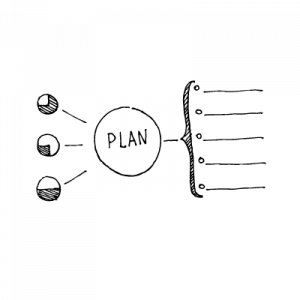The world’s most selective business schools have reported a sharp drop in MBA demand, lowering the bar to entry to a top MBA program and drawing a close to the pandemic-era surge in applications. But a rebound is expected as the economic outlook darkens.
Total applications to graduate business schools fell 3.4 percent year-on year in 2022, according to the Graduate Management Admission Council (GMAC), which runs entrance exams. This comes after volumes rose 2.4 percent year-on-year in 2020 at the onset of the pandemic and sustained that level of demand in 2021, when schools reported a 0.4 percent year-on-year increase.
Even the top institutions could not match the record high demand of the past two years, with applications to MIT Sloan School of Management down by a quarter in 2022. Harvard Business School reported a 15 percent drop in demand for its MBA last year, while the Wharton School at the University of Pennsylvania saw a 14 percent decline.
MBA demand is counter-cyclical
The demand for MBAs runs counter-cyclical to the economy — when the job market is experiencing turmoil application volumes go up, but the reverse is also true. “Over the past year, many companies added jobs and continued to hire, which created opportunities for employees to grow in their career without having to take a break for graduate study,” says Rebekah Lewin, senior assistant dean for admissions and programs at the University of Rochester’s Simon Business School, in the US.
“Additionally, inflation may also be a contributing factor,” she adds. “As some candidates assess the financial impacts of graduate study, it could delay their plans to pursue an MBA.”
Yet the decrease in demand will be encouraging to those who continue to see the MBA as a sound investment in their future, as it means the competition for a place at business school is reducing. One positive sign is that many schools have become more customer-focused and are engaging with prospective students during the application process, says Lewin.
“The reality is that MBA admissions is not a one-way decision. Of course, the school decides on admission, but the candidate also decides where to enroll. And most strong candidates have options.”
MBAs: a powerful career accelerator
For selective MBA programs, there is still strong demand with many more applications than available spaces. “MBA programs continue to be a powerful career accelerator, or an opportunity for those candidates looking to transform their career path,” says Pollyanna Nethersole, director of international recruitment and admissions at ESADE Business School in Spain.
Most graduates will have access to exciting career opportunities with higher salaries once they complete their MBA. So, admissions are still competitive, and candidates will need to craft a compelling application even as overall demand for MBAs falls. “We are keen to know what a candidate has to offer, in terms of professional experience and competencies as well as their personal mindset and attitude,” says Nethersole.
“Beyond the basics, we are interested in candidates who determine to pursue an MBA based on profound self-knowledge, rational argument and an overwhelming drive and ambition to succeed.”
Shelbi Brookshire, assistant dean of MBA admissions at the Smith School of Business at the University of Maryland in the US, spells out the reasons for MBA applicants to be optimistic; the factors leading to the current fall in competition. “A significant portion of the US population are aging out of pursuing an MBA with fewer than 20 percent in the traditional age range,” she says.
“In addition, the economic and workforce volatility of the pandemic has made prospective students more risk averse and have less appetite for incurring large amounts of debt,” she adds, particularly with interest rates increasing from historic lows.
Options beyond an MBA to upgrade skills
“There are also a number of substitutes ranging from industry specific certificates to specialty master’s programs that employers are recognizing as value-adds when considering a new employee,” Brookshire says, suggesting there are more ways to upgrade credentials.
With that said, the counter-cyclical nature of the demand for graduate business school means that many schools expect a resurgence in demand should because of the tougher economic environment.
“Applications will go up,” says Alex Collazo of admissions consulting firm Admissionado. “The price of a full-time MBA is not the tuition, it’s the opportunity cost of forgoing two years in the working world. When bonuses shrink, when people on the floor are getting laid off, that opportunity cost shrinks,” he adds.
“No one wants their resume to be tainted by layoffs, or to stay behind and take on the workload of all those fired coworkers. During a recession, there’s no better safe harbor for an early career professional than business school.”










